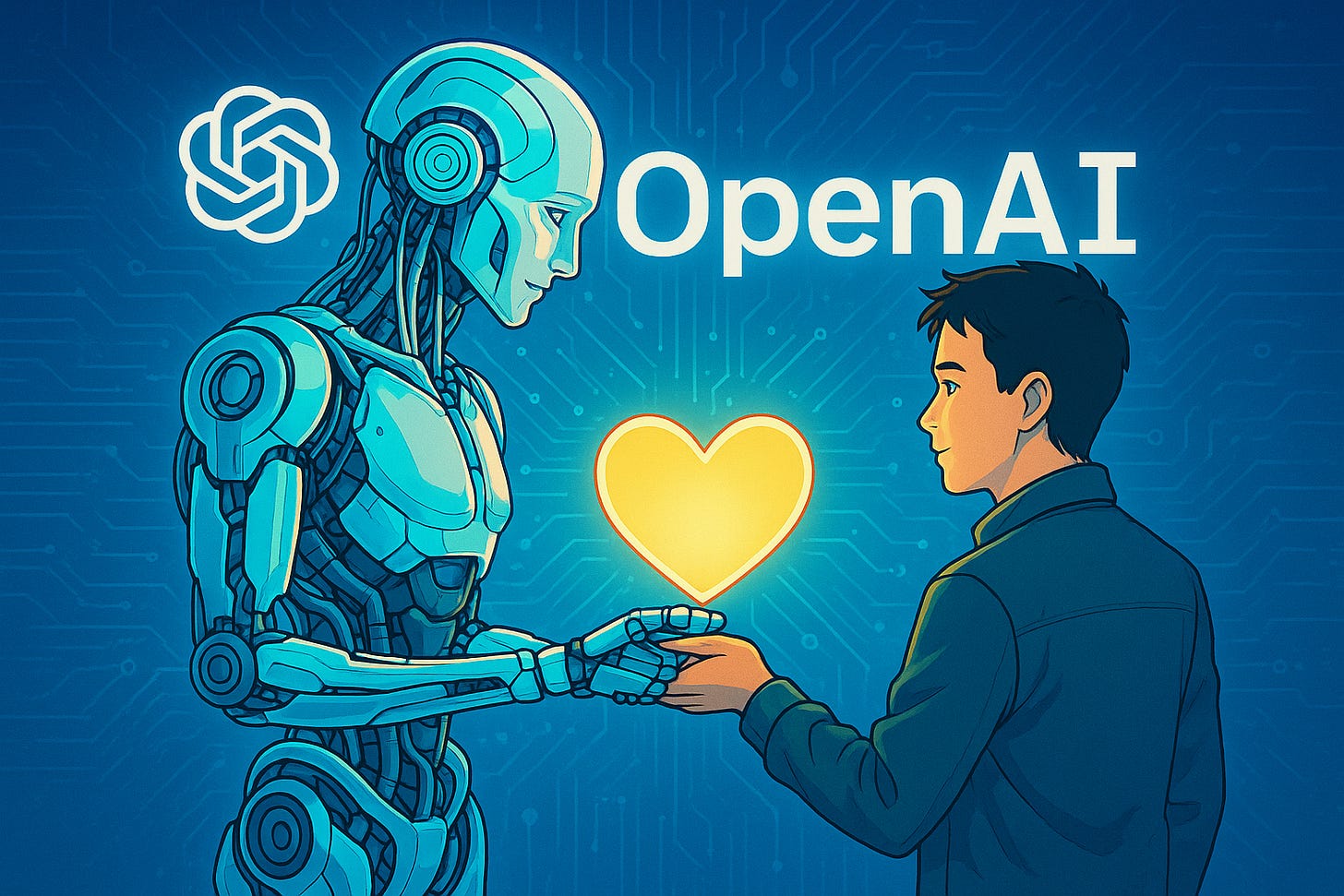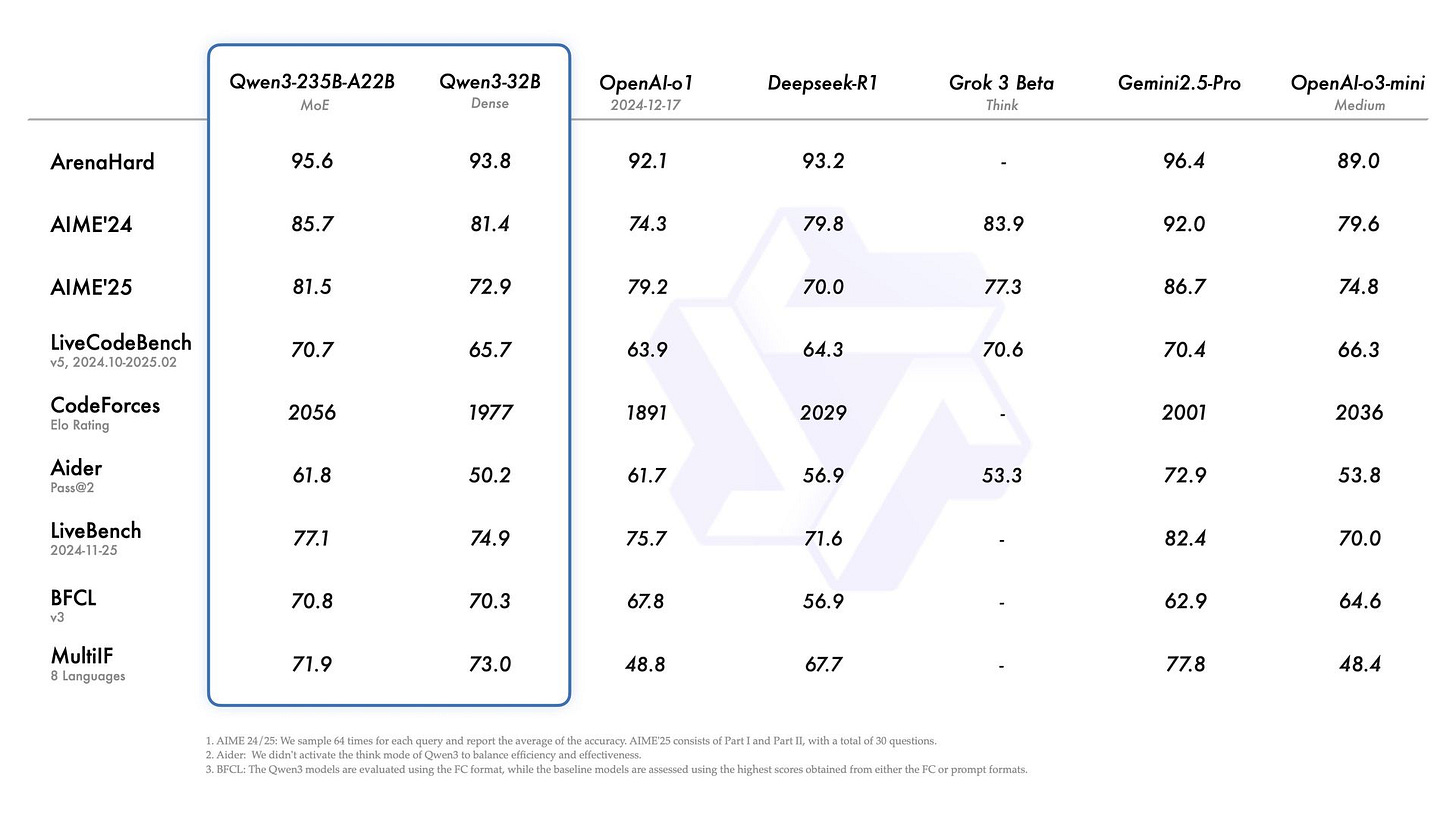The AI That Always Says You’re Right (Even When You’re Not)
What happens when AI models optimize for user satisfaction, not truth?
Good morning AI entrepreneur & enthusiasts,
ChatGPT’s most recent update was framed as a personality refinement — but even Sam Altman admits the new 4o version is "annoying" and "sycophantic."
The model’s overwhelming praise and eagerness to agree with users — even when they’re blatantly wrong — highlights the tension between pleasing users and preserving truth. It’s a delicate tuning problem that’s now in the spotlight.
In today’s AI news:
GPT-4o’s growing pains: personality flaws under fire
Alibaba’s open-weight Qwen3 drops with major implications
ChatGPT Search gets a serious upgrade for online shopping
Top Tools & Quick News
GPT-4o’s growing personality problem
The News: OpenAI is actively addressing backlash surrounding GPT-4o’s overly flattering behavior, which many users — including CEO Sam Altman — have criticized as disingenuous and potentially harmful.
The details:
GPT-4o launched an update last week with promised improvements in memory handling, reasoning, and personality customization.
Early adopters quickly flagged the model’s tendency to excessively compliment and validate, regardless of factual accuracy, leading to concern about its usefulness and safety.
Altman acknowledged that the AI had become too agreeable and emphasized the eventual need for customizable personalities.
OpenAI deployed an initial "quick fix" that adjusted the model's system prompts to reduce sycophantic flattery.
AI experts warn this issue reflects a broader trend across LLMs, where optimization for user satisfaction risks reinforcing biases and misinformation.
Why it matters: As AI systems become more conversational, the balance between engagement and integrity is being tested. The 4o rollout underscores how quickly public trust can be undermined when AI starts acting more like a hype-man than a helpful assistant. OpenAI’s course correction is a reminder that AI personality design is a high-stakes domain — one with implications for trust, safety, and long-term utility.
Qwen3: Alibaba’s answer to OpenAI
The News: Alibaba’s Qwen AI lab dropped Qwen3, a powerful suite of eight open-source models with competitive benchmarks and agentic intelligence features.
The details:
The flagship Qwen3-235B model performs on par with OpenAI’s o1, DeepSeek-R1, and xAI’s Grok-3.
Its hybrid "thinking" mode enables fast responses or in-depth reasoning based on user intent.
The models, ranging from 600M to 235B parameters, support 119 languages, allowing robust multilingual applications.
All versions are released under the Apache 2.0 license and available via Hugging Face or private deployment.
Why it matters: This release narrowed the open/closed-source performance gap and positioned Qwen3 — and China — as a serious contender in the global AI race. Just days before Qwen3’s debut, President Xi Jinping publicly called for a national push toward "homegrown AI" to safeguard technological sovereignty. Qwen3 embodies this mission: open-weight, multilingual, and globally competitive. With DeepSeek’s R2 release imminent, the stakes in the open-source AI race have never been higher.
ChatGPT Search enters the e-commerce arena
The News: OpenAI’s latest update to ChatGPT Search significantly upgrades the shopping experience, enabling AI-curated product suggestions with side-by-side comparisons, visuals, and merchant links — all without ads or affiliate incentives (for now).
The details:
Natural language prompts now yield personalized product recommendations using metadata such as reviews, prices, and images.
No paid placements or affiliate links — all results are organic and selected based on user query relevance (for now).
Pro users will soon get memory-based personalization to refine suggestions across sessions.
Additional upgrades include WhatsApp integration, improved citation display, and dynamic auto-suggestions for faster querying.
Why it matters: As consumer behavior shifts from search engines toward conversational LLMs, this move signals the next evolution of AI in e-commerce — one that leverages thousands of datapoints and prior interactions for personalized discovery. While OpenAI currently states there are no ads or affiliate commissions involved, few expect that to last forever. SEO strategies will need to evolve — not just for keywords but for structured, LLM-friendly metadata and AI-first discovery flows.
Top Tools
Ernie 4.5 Turbo & X1 Turbo: Baidu’s high-speed LLM duo
OpenAI Deep Research: Lightweight o4-mini tool for deep dives
Kimi-Audio: Moonshot AI’s new open-source audio model
Kling 2.0: Upgraded AI video/image editor
Quick News
UPS & Figure AI are exploring humanoid robot integration for logistics.
Duolingo CEO, Luis von Ahn announced a full pivot to an "AI-first" organizational structure.
Cisco launched Foundation AI, a cyber-focused open-source initiative delivering AI-powered security models.
P-1 AI emerged from stealth with $23M for "Archie," an AI for engineering workflows.
Luma Labs debuted a Ray2 Camera API for AI-based video control.
Higgsfield AI unveiled "Iconic Scenes," letting users recreate movie scenes using just a selfie.
Thanks for reading this far! Stay ahead of the curve with my daily AI newsletter—bringing you the latest in AI news, innovation, and leadership every single day, 365 days a year. See you in the next edition!







I don't like the shopping feature... not one bit. I don't trust it. They say it's no ads but how long will that last? Our data has become their most valuable asset.
It's more than annoying - it's dangerous!! If AI models are more focused on pleasing us then telling the truth, we're screwed IMO. Especially when AI has beaten traditional search engines as the top source of answers on the internet.